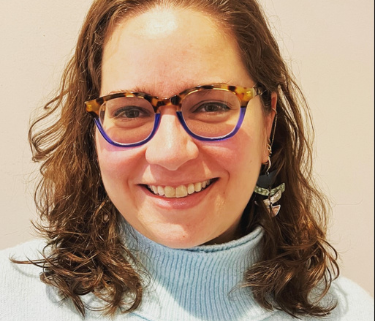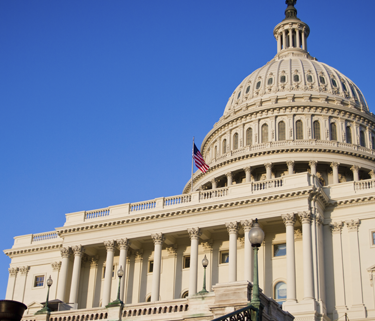Prenatal exposures to phthalates are linked to learning and behavioral problems including attention disorders; exposures are higher in children of color.
Washington, DC — Leading scientists and health professionals of Project TENDR say FDA’s refusal to ban phthalates from food processing and packaging flies in the face of rapidly accumulating evidence that phthalates do lasting harm to children’s brains. Contrary to this evidence, FDA today denied two petitions to eliminate the use of phthalates in food packaging and food production equipment, while acknowledging that its own assessment of phthalates’ safety for use in food-contact materials is out of date.
Though FDA simultaneously granted an industry petition to abandon certain food contact uses of phthalates, its decisions leave numerous authorizations in place that perpetuate phthalate contamination of the food supply.
FDA’s failure to grant the petitions poses an egregious and entirely preventable threat to expectant parents, infants, and children. In 2021, Project TENDR researchers published a seminal article in American Journal of Public Health identifying phthalates as neurotoxic chemicals that increase children’s risks for learning, attention, and behavior disorders.
Starting in 2016 and as recently as April 2022, Project TENDR experts submitted scientific comments to FDA in strong support of two petitions filed by the Natural Resources Defense Council, Center for Science in the Public Interest, Center for Environmental Health, Center for Food Safety, Clean Water Action, Consumer Federation of America, Earthjustice, Environmental Defense Fund, Improving Kids’ Environment, and Learning Disabilities Association of America, requesting that FDA eliminate its approval of ortho-phthalates as food additives in food contact substances.
While nearly everyone – including pregnant women – has detectable levels of phthalates in their bodies, Black and Latina women have higher exposure to phthalates than White women, independent of income level. Phthalates readily transfer from the mother to the fetus. In addition to lasting impacts on children’s brains, phthalates have long been known to harm reproductive tract development in male babies.
“There are dozens of studies finding adverse associations between phthalate exposure and multiple aspects of brain development, including effects on behavior, cognitive function and even brain structure, says Dr. Stephanie Engel, University of North Carolina at Chapel Hill Gillings School of Global Public Health, who in 2021 founded an NIH and EPA-funded brain imaging center to identify changes resulting from phthalates exposures. “There is no compelling rationale to continue waiting for more evidence when phthalates can be eliminated now from food packaging and processing.”
“FDA’s failure to act to get phthalates out of food is creating a serious public health problem of great magnitude,” says Dr. Ami Zota, George Washington University Milken Institute School of Public Health and an internationally recognized expert on the racial and socioeconomic disparities in phthalates exposures and health effects. “Until FDA reverses course, the health burdens from phthalate exposure in food will continue to disproportionately harm people of color, people of low wealth, and babies and young children undergoing critical periods of growth and development.”
Dr. Russ Hauser, Harvard T.H. Chan School of Public Health and Harvard Medical School, and co-author of the 2014 Chronic Health Advisory Panel (CHAP) report on phthalates that was used by the Consumer Product Safety Commission (CPSC) to justify banning certain phthalates from toys, states: “Eight years after the CPSC acted to protect children from phthalates in toys, the FDA still refuses to protect children from phthalates in food. No pregnant woman or child should unknowingly be ingesting phthalates with their breakfast, lunch or dinner.”
Experts available for interview:
Stephanie M. Engel, PhD, Professor, Gillings School of Global Public Health, University of North Carolina, Chapel Hill
Dr. Engel’s research considers the impact of environmental exposures and innate susceptibility factors on adverse pregnancy outcomes and neurodevelopmental impairment in children. Her research has identified a link between prenatal phthalates exposures and increased risk of attention disorders in children. Dr. Engel is Director of the UNC Center for Early Life Exposures and Neurotoxicity, and Deputy Director of the Center for Environmental Health and Susceptibility. In 2021, she was awarded major EPA and NIH grants to investigate the developmental impacts of neurotoxic chemicals. As part of Project TENDR, Dr. Engel is lead author of the seminal article, “Neurotoxicity of Ortho-Phthalates: Recommendations for Critical Policy Reforms to Protect Brain Development in Children,” American Journal of Public Health, February 2021.
Ami Zota, ScD, MS, Associate Professor, Milken Institute School of Public Health, The George Washington University:
Dr. Ami Zota is an internationally recognized expert in environmental health science and environmental justice. Her scientific research focuses on how the public is exposed to phthalates and the disproportionate harm phthalate exposure causes to people in certain populations, such as Black and Latina women of reproductive age. Her research has increased awareness of the link between fast food and phthalate exposures among the scientific community, policy makers, and the general public. Most recently, her research group found widespread detection of phthalates and other plasticizers in popular fast food meals, demonstrating that phthalates leach from processing equipment and packaging into food. She is a co-author of the 2021 Project TENDR phthalates article in AJPH.
Russ Hauser, MD, ScD, MPH, Frederick Lee Hisaw Professor of Reproductive Physiology, and Professor of Environmental and Occupational Epidemiology, Harvard T.H. Chan School of Public Health; Professor of Obstetrics, Gynecology and Reproductive Biology, Harvard Medical School
Dr. Hauser’s research focuses on the effect of environmental chemicals on male and female fertility, pregnancy outcomes and children’s health. He led a 20-year NIH-funded study of the effects of endocrine disrupting chemicals, including phthalates, on male and female reproductive health. Dr. Hauser is currently conducting an NIH-funded study on the effect of maternal and paternal exposures to environmental chemicals on children’s health, growth, and neurobehavior. Dr. Hauser was co-author of the 2014 Chronic Health Advisory Panel (CHAP) report on phthalates that the Consumer Product Safety Commission (CPSC) used to ban certain phthalates from toys. He is a co-author of the 2021 Project TENDR phthalates article in AJPH.
Project TENDR which stands for “Targeting Environmental Neuro-Development Risks,” is a collaboration of leading scientists, health professionals, and advocates protecting children’s brains from toxic chemicals and pollutants. Project TENDR is a program of The Arc.
The Arc advocates for and serves people with intellectual and developmental disabilities (IDD), including Down syndrome, autism, Fetal Alcohol Spectrum Disorders, cerebral palsy, and other diagnoses. The Arc has a network of nearly 600 chapters across the country promoting and protecting the human rights of people with IDD and actively supporting their full inclusion and participation in the community throughout their lifetimes and without regard to diagnosis.


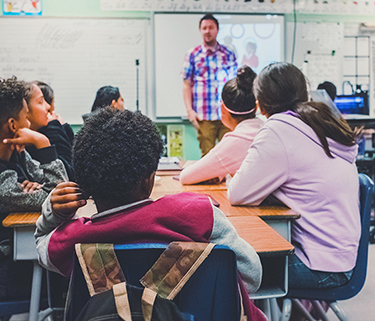
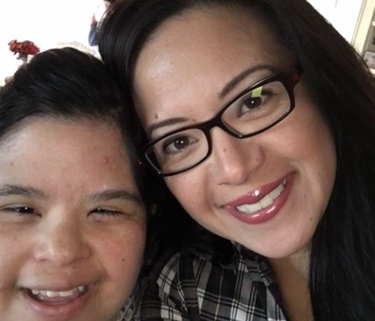
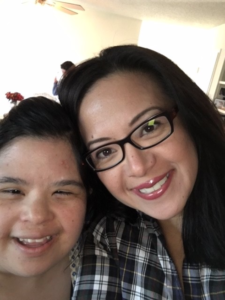 ry initiatives: competitive wages for direct support professionals (DSPs) and home and community-based services (HCBS). DSPs are a critical workforce that provides daily personal care and other independent living support services for many people with IDD. The National Sibling Council also hosts sessions at The Arc’s annual National Convention for siblings to connect and learn about ways to get involved in advocacy.
ry initiatives: competitive wages for direct support professionals (DSPs) and home and community-based services (HCBS). DSPs are a critical workforce that provides daily personal care and other independent living support services for many people with IDD. The National Sibling Council also hosts sessions at The Arc’s annual National Convention for siblings to connect and learn about ways to get involved in advocacy.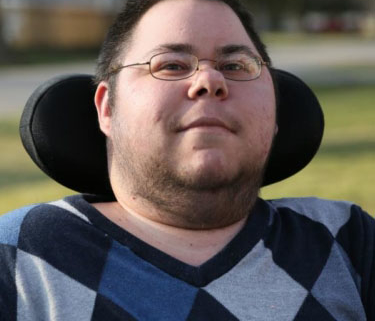
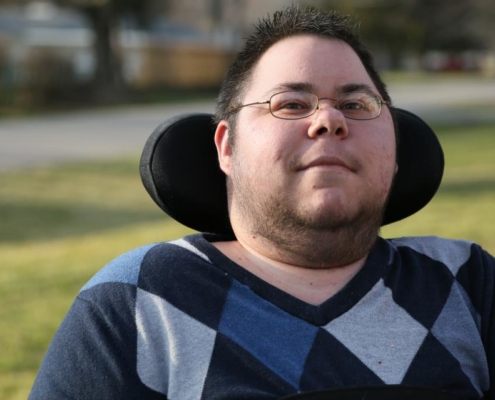
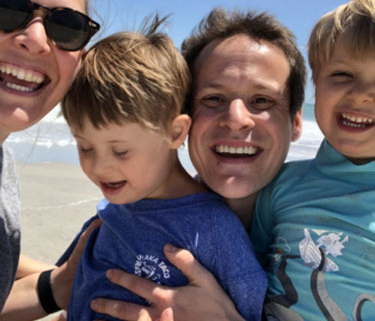
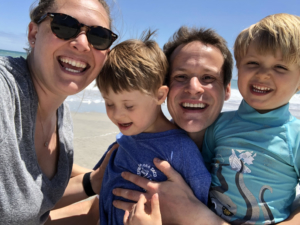
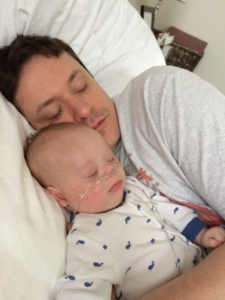 The night Jack was born, Burt reflected on his lifelong friendship with and advocacy for John and told his wife Kim that “she would never have married the person I had become if not for my brother.” Armed with the right information, Burt and Kim felt they could provide Jack the support he needed to flourish: “I don’t know why our son Jack has these challenges, but you give him a couple of years or decades and we’re going to see how he starts to change the world.”
The night Jack was born, Burt reflected on his lifelong friendship with and advocacy for John and told his wife Kim that “she would never have married the person I had become if not for my brother.” Armed with the right information, Burt and Kim felt they could provide Jack the support he needed to flourish: “I don’t know why our son Jack has these challenges, but you give him a couple of years or decades and we’re going to see how he starts to change the world.”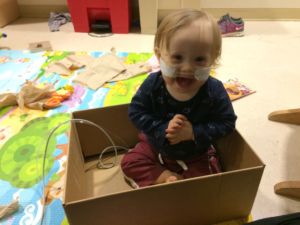
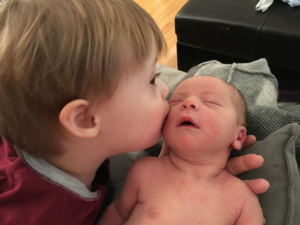
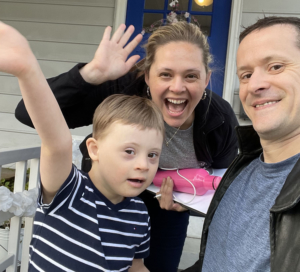 As far as advice for other dads, Burt emphasized the need for information and resources to help Jack over his hurdles. Importantly, though, Burt champions that “every child is different. There is no playbook for anyone…Love your kid. Love your partner…If you love your child as much as you can today, tomorrow will get figured out.”
As far as advice for other dads, Burt emphasized the need for information and resources to help Jack over his hurdles. Importantly, though, Burt champions that “every child is different. There is no playbook for anyone…Love your kid. Love your partner…If you love your child as much as you can today, tomorrow will get figured out.”